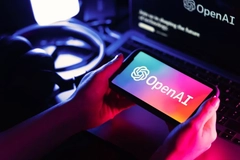AmphiStar secures €2M grant for tailor-made biosurfactants upcycled from organic waste

Belgian biotech start-up AmphiStar nets €2 million (US$2.2 million) to scale its biotechnology platform, which creates sustainably tailored biosurfactant molecules. These are upcycled from organic waste for use in cleaning, cosmetics and personal care markets.
The designer biosurfactants, produced from organic waste and side streams, can bean alternative to mainstream chemically produced surfactants (fossil- and biobased) and other commercial microbial biosurfactants.
The non-dilutive grant from SPRIND (“Federal Agency for Disruptive Innovation”) forms part of a multi-stage funding program backed by the German government.
The new capital injection brings the total funding the Belgian innovator secured this year to €10 million (US$10.9 million).
“What sets our technology apart is its ability to generate novel, high-performing molecules while keeping sustainability at its core,” says Sophie Roelants, co-founder and COO of AmphiStar.

“This grant enables us to concentrate on developing entirely new, promising molecules at low technology readiness levels, all produced from waste through a continuous biomanufacturing process.”
“Our goal is to reduce costs and enhance sustainability, while maintaining functionality, aligning perfectly with our mission to replace traditional surfactants with environmentally responsible, bio-based alternatives — without compromising on quality or affordability.”
Exceeding output projections
AmphiStar says its biotechnology platform is at the “forefront of a new era in surfactant production,” leveraging synthetic biology to create designer molecules that meet specific performance needs.
 AmphiStar says its biotechnology platform is at the “forefront of a new era in surfactant production.”During the first year of the SPRIN-D program, the AmphiStar team successfully performed a continuous biomanufacturing process for 75 days — 15 days longer than the 60 days anticipated by SPRIN-D — using only waste materials to produce a wholly novel biosurfactant molecule.
AmphiStar says its biotechnology platform is at the “forefront of a new era in surfactant production.”During the first year of the SPRIN-D program, the AmphiStar team successfully performed a continuous biomanufacturing process for 75 days — 15 days longer than the 60 days anticipated by SPRIN-D — using only waste materials to produce a wholly novel biosurfactant molecule.
Following a rigorous selection process, AmphiStar emerged as one of only six teams to pass to the program’s second round, which supports disruptive innovation in the biotechnology sector.
The company previously secured €1.5 million (US$1.6 million) in the program’s initial phase last year and is now competing for an additional €2 million (US$2.2 million) in the final round of funding, to be awarded next year to two top-performing teams.
“This grant will enable us to push forward our most ambitious innovation goals,” says Pierre-Franck Valentin, CEO of AmphiStar.
“This support reinforces the German government’s recognition of our breakthrough technology and its potential to revolutionize the industry.”
Biosurfactants snapshot
Personal Care Insights previously explored developments in biosurfactants — considered “one of the most promising technologies” in the personal care sector, particularly in the use of glycolipids such as rhamnolipids, sophorolipids, mannosyl erythritol lipids and other similar compounds.
In August, Unilever upgraded its Sunlight dishwashing liquid with its biosurfactant RhamnoClean, made from 100% plant-based renewable and biodegradable cleaning ingredients.
Unliever’s rhamnolipid technology was launched in Chile in 2019 in its Quix dishwashing liquid. To keep up with demand, Evonik built a production facility at its factory in Slovenská Ľupča, Slovakia. It’s the world’s first industrial-scale plant creating rhamnolipids.













